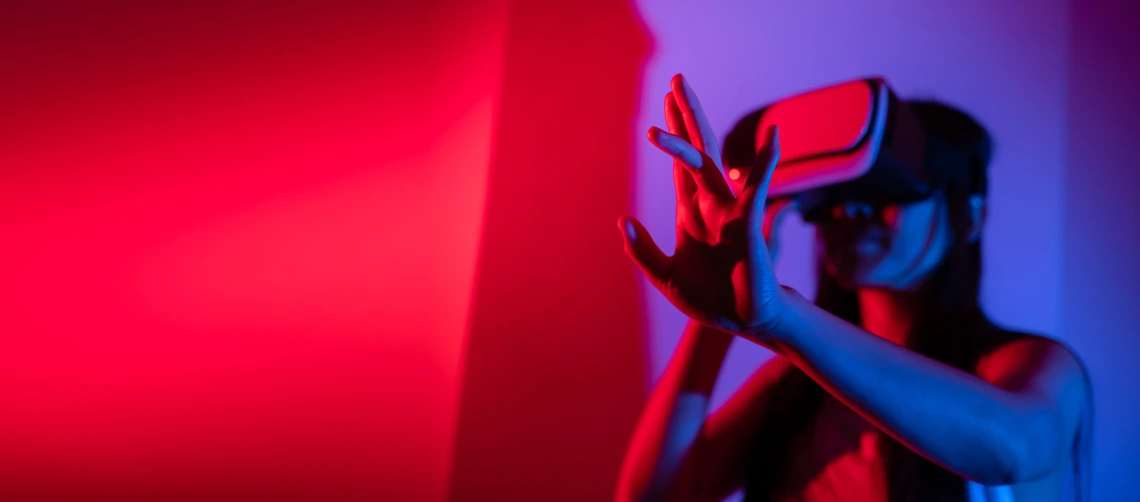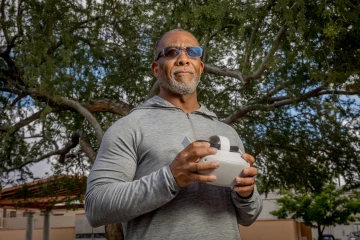In Someone Else's Shoes
Anti-racism project uses virtual reality to simulate experiences of discrimination.

The phrase “walk a mile in someone else’s shoes” is a familiar reminder to empathize with others. At the University of Arizona’s Anti-Racism Extended Reality Studio, it can now be more than an imaginative exercise.

“Knowing the power of immersive education and knowing that the national conversation is about racism and inequality, we’re looking at leveraging this new technology to help with that dilemma,” says Bryan Carter, a UArizona associate professor of Africana Studies in the College of Humanities. “By creating scenarios, we’re hoping to help people step into the shoes of others by being a first-person observer — observing things that are happening around and to you.”
Carter says that extended-reality experiences can alter perspectives and make productive discussions about racism possible — more so than similar discussions initiated without the help of immersive technology. “The invisibility of systemic racism can be uncloaked,” he says.
Participants will wear a headset in an immersive video setting depicting, for example, a department meeting or classroom. Actors carrying out scripted interactions will convey common experiences of racism, including snide comments or hostility.
“Those are the kinds of microaggressions that typically go unaddressed. They’re difficult to track, and we want to take people into the world of someone who experiences things like that so they can differently understand what that experience is like,” Carter says.
The pilot project, launching next fall, also will include augmented experiences for mobile devices and tablets. Participants will be able to interact with a police officer to re-create a common interaction, for example. Different responses will guide different interactions, and the first-person perspective will show what it’s like to be treated unfairly, Carter says.
“We’re talking about real-life actors playing these roles, as opposed to avatars. We’re hoping the visceral reaction people will have to something more realistic will have more of an impact.”
The goal, Carter says, is to integrate the simulated experiences into orientations or diversity trainings.
“We don’t just want this to be someone putting on a headset and then going away when it’s over. It’s meant to be combined with other activities,” Carter says. “The plan is, after we’ve piloted this, we’ll be able to invite community groups, students and faculty who have an idea or scenario or a group they’d like to go through this, and we’ll be able to assist them with the development of that idea.”
